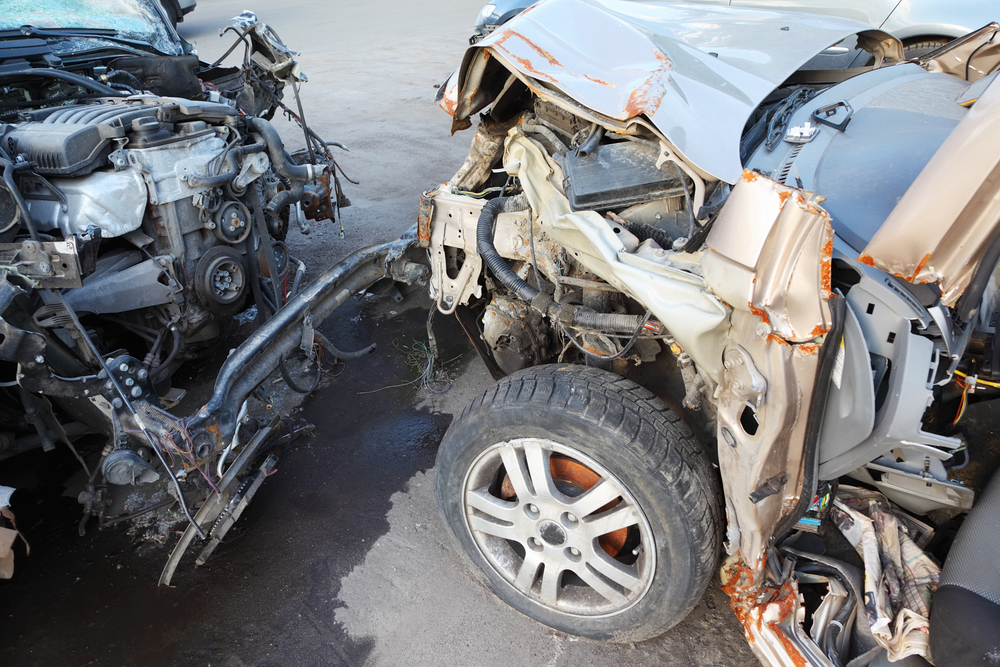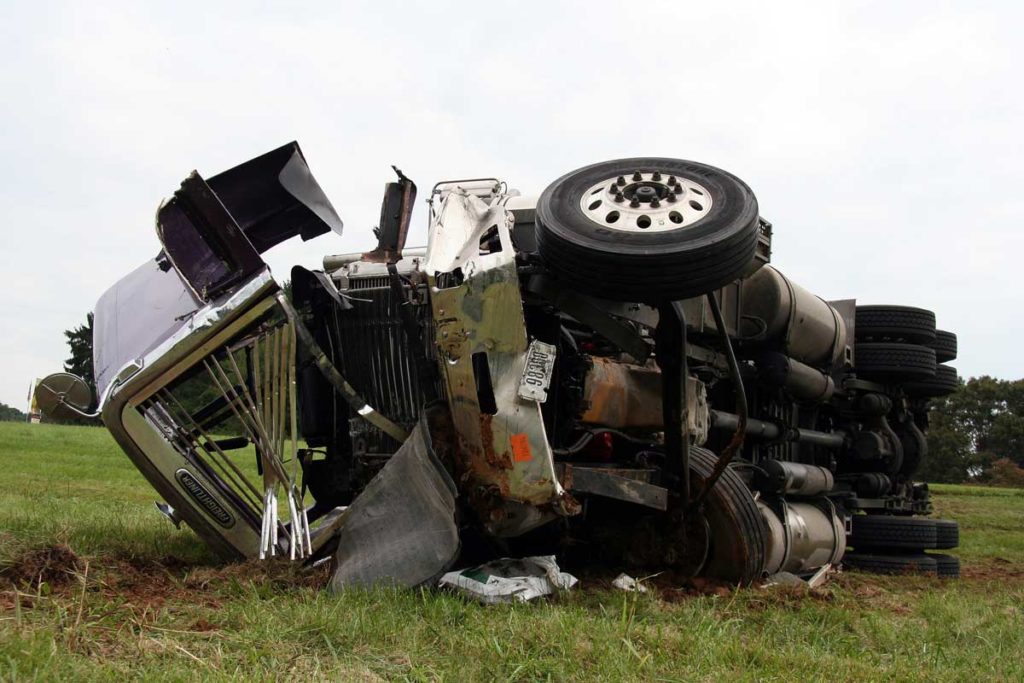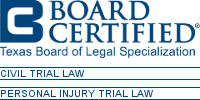Who Is At Fault In A Truck Accident?
If you have been injured in a 18-wheeler, tractor-trailer, semi-truck, or any large truck accident then call an experienced Houston truck accident lawyer immediately. You should know your rights. And you should know how the truck wreck may have been caused by carelessness, negligence, or intentional violation of safety regulations.
The Truck Driver
The biggest cause of commercial truck accidents is driver error. Fatigue, excessive speed, distracted driving, drug or alcohol use, lack of training and experience, failure to adjust to road and weather conditions, and poor judgment are the most common causes of driver error. In all fairness, some truck accidents are caused by car drivers and drivers of other vehicles.
The Trucking Company
Often the trucking company can be held liable in a truck accident for a number of reasons. Below are some of the most common reasons trucking companies have been found liable and lost personal injury lawsuits.
- Poor Hiring Practices and Insufficient Background Checks
- Poor Driver Training
- Inadequate Supervision Of Drivers
- Failure To Track Hours Worked And Break Periods
- Failure To Maintain Trucks
- failure to Maintain Brakes
- failure to Maintain and / or Replace Tires
Supervision
Technology has given trucking companies and drivers new tools to make their jobs safer. This technology is also used to determine the facts that occurred before and during a truck accident.
Little Black Box
The “little black box” is officially known as the Electronic Logging Device or ELD. It is also called the Digital Event Recorder. The “little black box” is utilized in all types of transportation from commercial aircraft to trains to ships. It is designed to record data such as speed, time of day, weather conditions and more. There are various sensors that are part of this recording system and each “little black box” or ELD is designed or customized for the type of vehicle in which it is installed.
The Electronic Logging Device on a truck can be a valuable tool when investigators are attempting to analyze a truck wreck. The recorded data will frequently become part of a truck accident personal injury case because it offers so much information prior to the truck wreck. Some of the most important information recorded by an ELD system is:
- Speed of the truck
- Timing of the driver’s use of the brakes
- Movement and position of the steering wheel
- GPS location data that is accurate within several feet
- Engine performance
Dash Cams
Dash Cams are not mandatory in the USA. However, some trucking companies use dash cams to record the traffic and the truck driver. Dash cams can point forward to record the traffic that the truck driver sees. Other dash cams can record the driver while driving and other dash cams can be positioned to record traffic on the sides or back of the truck.
Dash cams can work both for the benefit or detriment of the trucking company. They can clearly show that a car driver or other driver was at fault in a truck accident. They can also clearly show that the truck driver was at fault. Regardless, a nimble truck accident attorney will demand a copy of all dash cam videos as quickly as possible.
Collision Avoidance Systems
Currently the market offers a number of collision avoidance systems using advanced radar and / or cameras to prevent truck accidents. These systems can be purchased for a company’s entire trucking fleet. Although their primary benefit is collision prevention they do have other benefits such as fuel economy measurement, adherence to drive time regulations, and downtime reporting.
Other Businesses That Could Be Liable In A Truck Wreck
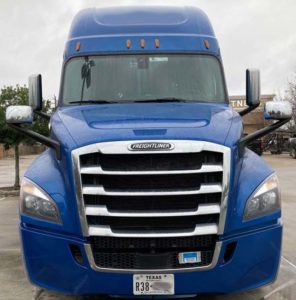 Business That Contracted Trucking Company
Business That Contracted Trucking Company
Corporations and businesses that hire trucking companies have an obligation to perform some due diligence. They should confirm the basic qualifications of the trucking company and its history of compliance with federal and state trucking laws and regulations. They should also review their history of hiring truck drivers and their training and supervision of their drivers.
Distribution Centers
Truck drivers often visit multiple distribution centers and deliver only part of their loaded contents. In every instance the remaining contents should be evenly distributed by weight and the contents should be secured so that they cannot shift during transportation. A truck with an uneven weight load could be dangerous during transit and especially during braking. A truck with contents that shift from one side of the trailer to the other side could also be dangerous. Therefore the workers at the receiving distribution centers should confirm that the remaining contents are evenly distributed by weight and secured.
Manufacturers Of Defective Parts
Large trucks such as 18-wheelers and dump trucks are heavy machines. Defective parts or parts that have not been properly maintained or replaced have caused horrific truck accidents in the past.
Defective Parts And Equipment + Poor Maintainance
- Brakes – brake failure, defective air brakes
- Tires – tire blowouts, tire failure, improper tire pressure
- Loading straps and faulty restraints
- Coupling systems and trailer hitches
- Steering system
- Broken or non-functioning taillights
- Hydraulics failure
- Parts subject to recall claims
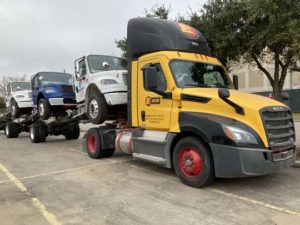 Companies And Persons Liable For Defective Equipment On Trucks
Companies And Persons Liable For Defective Equipment On Trucks
- company that manufactured the defective equipment
- wholesaler or retailer that knowingly sold defective equipment after it had been recalled
- drivers who fail to inspect and/or take action to remedy defective equipment
- trucking companies that fail to satisfy an acceptable level of maintenance of their trucks
- truck mechanics who fail to inspect and/or take action to remedy defective equipment
The Federal Motor Carrier Safety Administration
The Federal Motor Carrier Safety Administration (FMCSA) is an agency in the United States Department of Transportation and it is the primary agency within the United States government responsible for regulation and safety of commercial motor vehicles. FMCSA’s mission, as stated on their website, “is to reduce crashes, injuries, and fatalities involving large trucks and buses.”
The FMCSA works with other parties, such as safety advocates and state and local governments, “to improve commercial motor vehicle safety through regulation, education, enforcement, research, and technology.”
An Imminent Hazard to Public Safety
On February 7, 2022, a fatal truck crash involved a trucking company operating in the state of Texas. Below are a few of facts discovered in the preliminary investigation. The truck driver and the truck were previously associated with another Texas trucking company that had been “placed out-of-service as an Imminent Hazard on January 25, 2022″. When the connection to the previous trucking company was discovered, the FMCSA found the current trucking company to be “egregiously noncompliant with multiple Federal safety regulations”. The following areas were specifically noted for noncompliance.
- Noncompliant – Controlled Substances and Alcohol Use and Testing
- Noncompliant – Commercial Driver’s License Standards
- Noncompliant – Driver Qualification
- Noncompliant – Driving of Commercial Motor Vehicles
- Noncompliant – Parts and Accessories Necessary for Safe Operations
- Noncompliant – Hours of Service of Drivers
- Noncompliant – Vehicle Inspection, Repair, and Maintenance
Truck Wrecks You May Not Believe
There is an almost infinite number of ways a truck driver and large truck can compromise the safety of the Texas public on the roads and highways. Below are a few examples of the dangers that occur on a too frequent basis in Texas.
Stopping, Slow, Outside Traffic Lane
There are also a number of truck wrecks caused by truck drivers stopping their rigs, or going very slowly, in outside traffic lanes, in order: (a) to drive into a parking lot where there otherwise would be a wait; or (b) to save time by not turning off the roadway to wait for the next assignment. When innocent motorists slam into the back of these trucks, usually resulting in death or serious injury to the driver and/or passengers, truck drivers and their insurers usually claim it was all the vehicle driver’s fault for failing to keep a proper lookout. An experienced and knowledgeable truck wreck attorney may be able to help place the blame where it should lie, on the truck driver who obstructed the roadway.
Complete Disregard For Safety And Rule Of Law
Jaypur Logistics LLC, a Houston, Texas, based trucking company, received an “Out of Service“ order from the Federal Motor Carrier Safety Administration (FMCSA). The reason for the order is was that the FMCSA had deemed the trucking company “an imminent hazard to public safety”.
Jaypur Logistics had hired six drivers that had been prohibited from driving commercially because the drivers had “run afoul” of the FMCSA’s drug and alcohol regulations. The FMCSA noted that the trucking company did not have any program to screen and confirm that its drivers were licensed. Nor did it have any program to detect drug use by its drivers.
What makes this incident MORE APPALLING is that the trucking company had received an “Out of Service” order 24 days earlier under a different legal name. The company simply acquired a new legal name (Jaypur Logistics LLC) and was back in business in less than one month.
The citizens of Texas are very fortunate that none of them were killed or injured by the actions of the owners and truck drivers of Jaypur Logistics LLC. The company is subject to a $30,000 fine for each violation of the “Out of Service” order. But will that be enough punishment to deter these “bad actors” in the future? Probably not. Prison time should be part of the punishment.
Click here to read some of our blog articles concerning trucking safety violations and more


